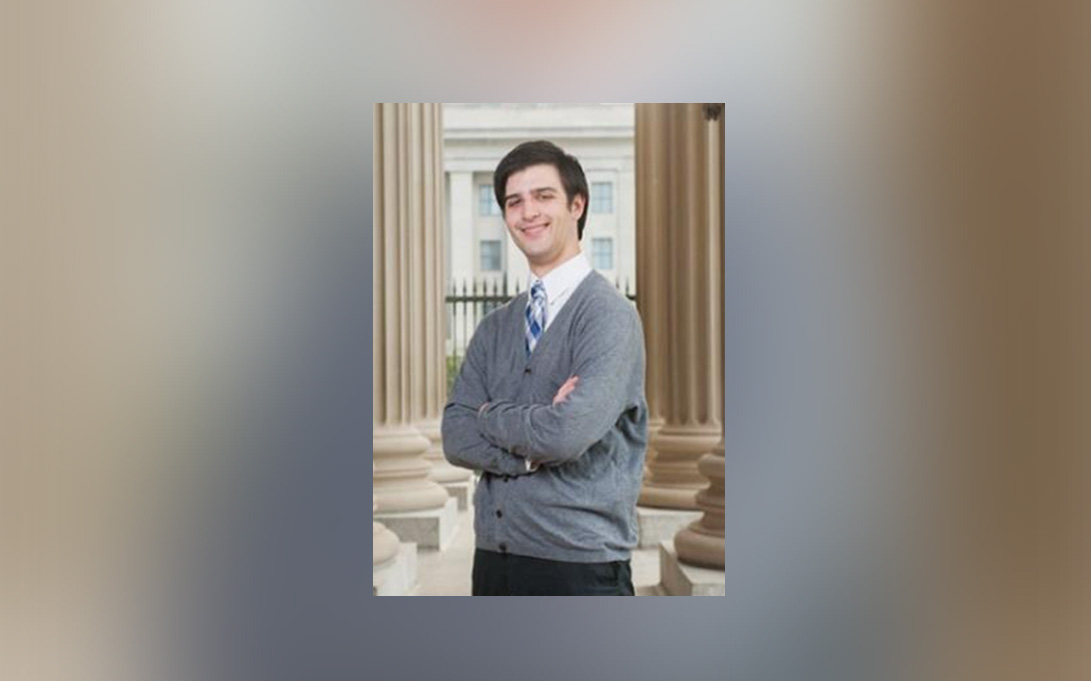
For Gary Graca (BA '09), a degree in public policy was about seeing what happens out of public view. As a paralegal in the Civil Rights Division of the U.S. Department of Justice (DOJ), Graca visits the inner workings of state-funded prisons and mental health facilities to ensure compliance with civil rights laws. Much of Graca's work is based on Olmstead v. L.C., a 1999 U.S. Supreme Court ruling that prohibits states from institutionalizing people with disabilities if they could be accommodated in community care settings. Failure to follow the Court's "integration mandate" would be a violation of the Americans with Disabilities Act.
"My purpose in coming to DOJ was to help people—vulnerable people—primarily with sensitive and complicated health care issues," Graca said.

|
Graca's interest in prisoners' civil rights—particularly health care for those afflicted with mental illness—began when he was reporting on the case of Timothy Souders for The Michigan Daily. Souders, a 21-year-old diagnosed with manic depression, died of dehydration in August 2006 at the Southern Michigan Correctional Facility in Jackson, Michigan. He had spent most of four days constrained by chains to a cement slab while awaiting transfer to a psychiatric facility.
In the course of his reporting for the Daily (of which he would become editor in chief in 2009) Graca became familiar with the Office of the Independent Medical Monitor. The office had been tasked with improving medical care conditions at the Jackson facility and three other Michigan prisons after inmates filed a lawsuit in the 1980s. Graca took a summer job at the office and continued to work part-time the following school year. By the time he was admitted as a member of the Ford School's first class of undergraduates in 2007, Graca had a profound understanding of the need for prison reform.
"Prisons in America—well to say the least, I see this as one of America's primary human rights issues," Graca said. "It's something we spend a lot of money on to get very poor results from. It shouldn't be that way." He offered some of his solutions in a term paper on prisoner re-entry initiatives for Professor Sheldon H. Danziger's seminar on social welfare policy.
"Gary was one of the very few students who had the depth of insight to go beyond the assignment and develop original policy recommendations," said Danziger, who nominated Graca's paper for inclusion in the Gramlich Showcase of Student Work. "It was the first time in many years that I gave a student a '100' on a class paper."
Graca has traveled the country since 2010 for compliance inspections, to monitor reforms already under way, and to assist legal proceedings related to possible ADA violations. He noted that prisoner health care reform is often judicially driven—prompted by lawsuits such as the one brought against the Michigan prisons. Once in state custody, prisoners and patients must often rely on their families to speak on their behalf or have no advocate at all. And that has fueled Graca's commitment to the cause.
"The work that I did in the facilities in Michigan solidified for me that not only is it a complicated problem, it's one that affects people's lives dramatically. It's not just the people in prison who have all sorts of issues. All those people have families outside of prison," Graca said. "There's a policy side to it but there's also a human side that's really important."
Photo: Aaron Clamage / clamagephoto.com
Below is a formatted version of this article from State & Hill, the magazine of the Ford School. View the entire Fall 2012 State & Hill here.
 Gary Graca (BA '09) (left) was editor in chief of the Michigan Daily during his senior year, here with Nate Sandals (BA '09) and Ben Simon (BA '09).
Gary Graca (BA '09) (left) was editor in chief of the Michigan Daily during his senior year, here with Nate Sandals (BA '09) and Ben Simon (BA '09).